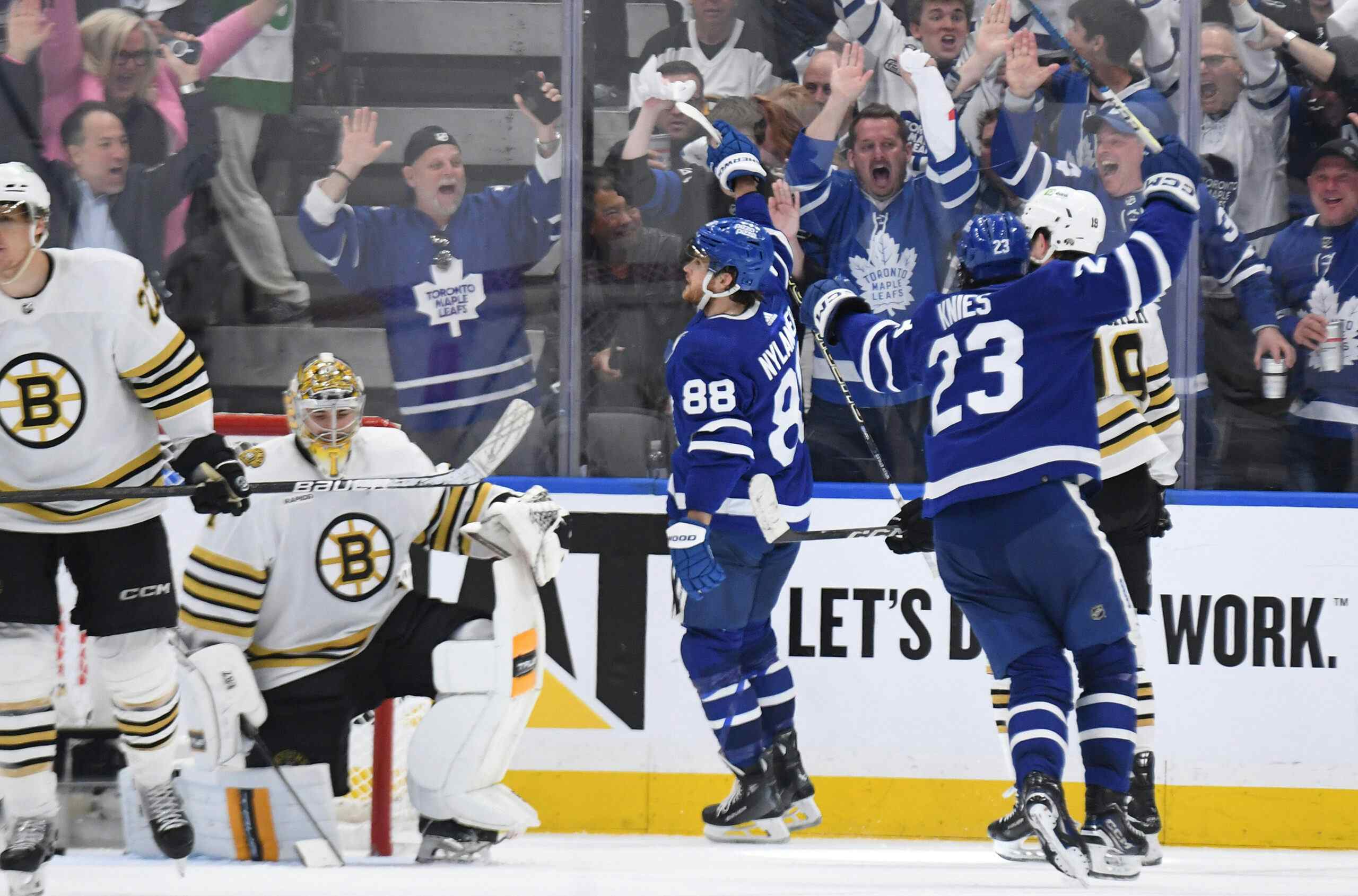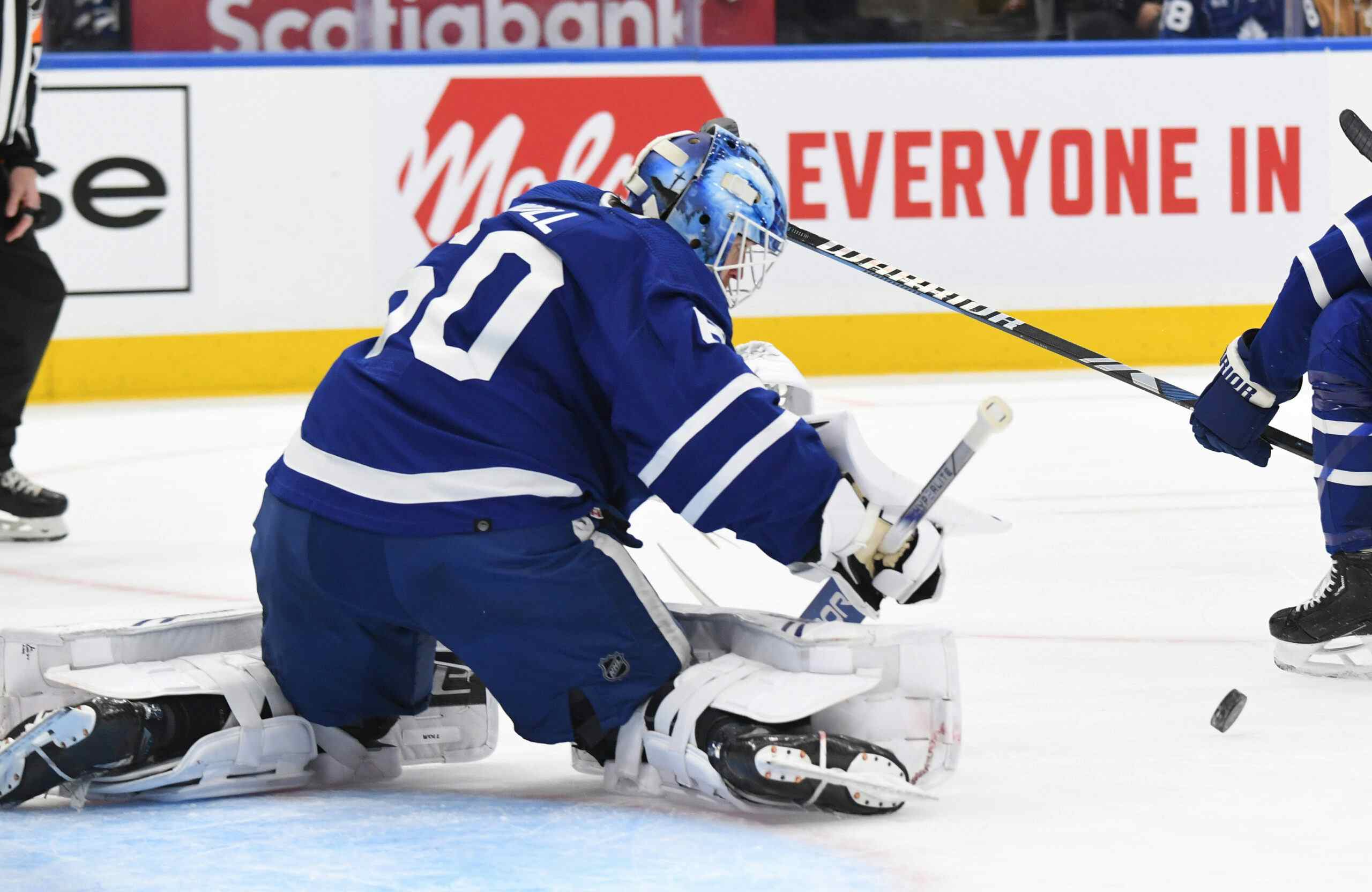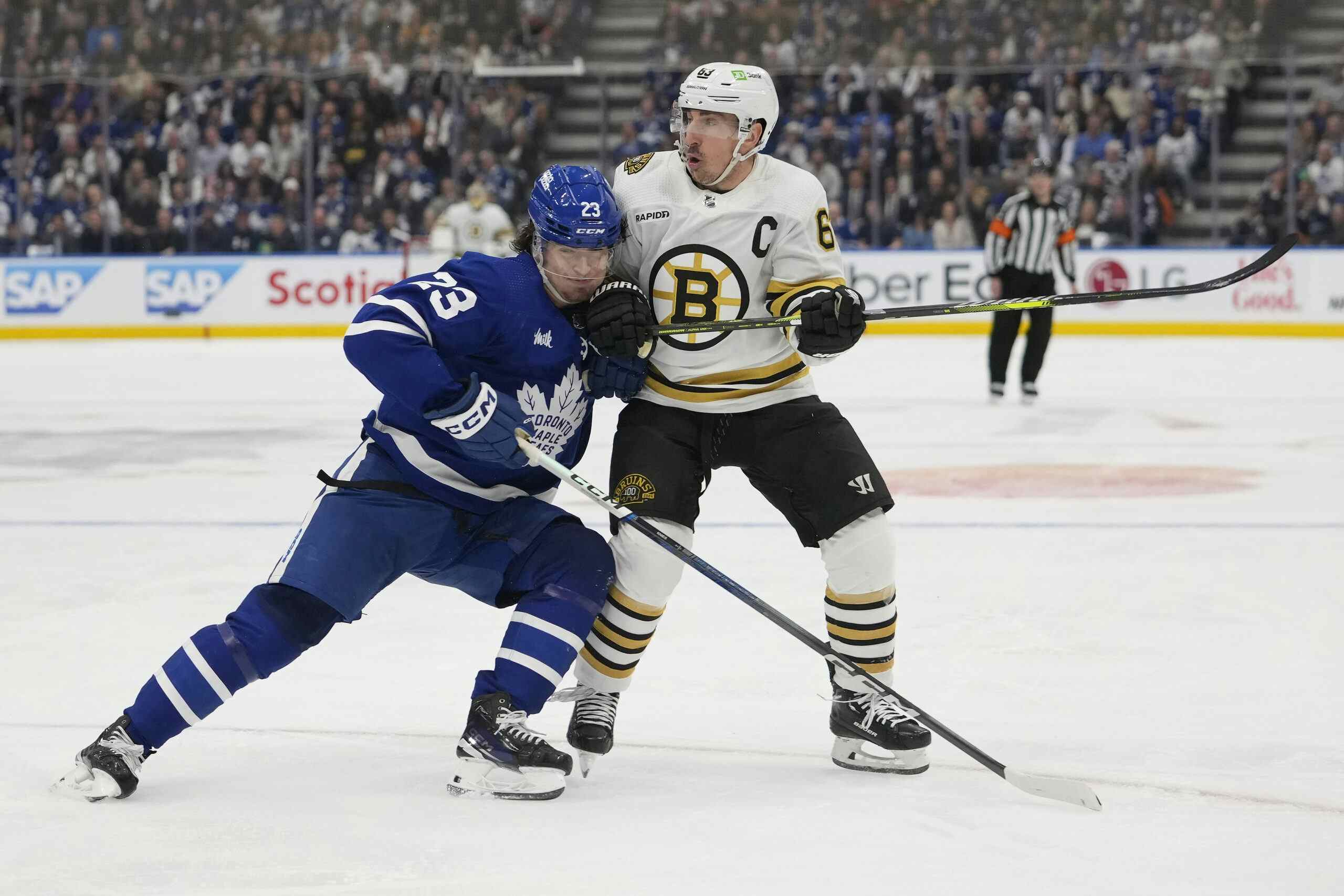Brian Burke: Unfinished Journey
By Gus Katsaros
11 years ago
Dave Nonis takes over the captain’s chair. The logical, soft-spoken Picard to Brian Burke’s brash, histrionic Kirk.
The replacement doesn’t change the mindset, the plan or the framework of Burke’s vision, however difference of opinion between the two friends and former co-workers can be addressed now. Nonis can put his fingerprints over the foundation Burke laid out.
Nonis outright dismissed a tear down of the current state of the franchise. But where is the current team, how did they get here and more important, where are they headed? The clear cut direction isn’t evident at first glance, requiring further thought.
The blueprint for the Leafs tenure behind Brian Burke is similar to the evolution of the Detroit Red Wings, improving in the back offices, scouting and resource staffing, bringing in young players after they finally had that first all important piece, Steve Yzerman.
That blueprint took years to implement – in a hockey world without the constrictions of a salary cap – as we shall shortly see, a luxury not afforded Burke after the events of January 9, 2013.
Burke’s attempt at an accelerated franchise turnaround ended in a disastrous follow up season resulting in a prized prospect ending up in Boston, forever binding Tyler Seguin to Phil Kessel.
That trade is made when teams are contending and not ideal for a rebuilding team. The hindsight optics in further skew the results out of favor.
There’s little consideration that there was a hard asset acquired in Phil Kessel as the return for the draft picks. The asset value gets lost in the trading away of the draft picks as if they returned nothing, and set up the Bruins.
The Phil Kessel trade, the easy target, isolated in hindsight, for what it became rather than what it really was when the deal was consummated. Burke’s hastening to kick start the rebuild preceded a breakdown in one of the components leading to his downfall – goaltending. It would lead to the second last place finish.
The trade was about acquiring an assest after an assessment of the crop of talent, pulling the trigger based on expected results. The results didn’t materialize and thus began the downward spiral. A look through drafted players in 2010 and 2011 don’t jump out as front line, first line center type talent the expectations afforded with a high first round pick. Other than the Taylor versus Tyler debate, I don’t feel there was enough incentive to for the expected results. I’ve elaborated more on that here.
A notable from that draft projecting a stark contrast was the Ottawa Senators trading away a first round pick to St. Louis for defenseman David Rundblad. A first round pick, drafted 17th overall the previous year. Follow the lineage and Kyle Turris was essentially acquired for a first and second round pick.
Quietly done on the draft floor, Senators general manager Bryan Murray made a transaction that would have ended in an uproar if announced at the trade deadline.
Perception is key.
A subtle case can be made of the 2011 crop as well, but a short period of elapsed time isn’t enough to assess the level of success or failure.
Don’t let facts get in the way of a good narrative.
The 1980’s Red Wings began writing their future with the drafting of Steve Yzerman, the young, exciting player the Wings could build a team around. Yzerman lasted through a string of awful Detroit teams with some moderate success.
Detroit’s President Jimmy Devellano as he described in his book, ‘The Road to Hockeytown’ began his tenure with Detroit in 1982 after a successful stint with the New York Islanders. He faced a similar situation, a decimated uninspiring lineup full of weakness and thin talent.
Early in his tenure, Devellano and the Red Wings produced the future franchise player, Steve Yzerman landing him after Brian Lawton, Pat Lafontaine and Sylvain Turgeon were selected. This is where the building blocks began.
Devellano requested funds from Mike Illitch to signing college free agents a parallel of attempts Burke made, landing Tyler Bozak, Christian Hanson and more recently, Spencer Abbott.
Detroit won the Ray Staszak sweepstakes. It was a million dollar derby for the college free agent – the first college player to sign a million dollar contract – a very steep price for a player that lasted four NHL games. Sometimes there’ s a swing-and-a-miss. Devellano praised owner Mike Illitch and his willingness to open his wallet to make the team better. Even after a fiasco like Staszak.
The Red Wings draft record over the 1980’s further proved the patient style only really paid off in two complete drafts in 1986 and 1989, producing some talent along the way.
The 1990 draft produced a couple more players that would have an impact in Keith Primeau and Vyacheslav Kozlov, but this was the springboard to respectability for the Red Wings.
It took the better part of eight seasons, in a non-salary capped environment to push the perennial Stanley Cup Contenders into a position to be contenders.
It would take six more seasons for the Red Wings to win the Stanley Cup, almost 14 from the initial hiring of Devellano and implementing his early vision, ending a 40 year Stanley Cup drought, having won it last in 1954-55.
There is one important caveat to the Red Wings in the 80’s that differs. Devellano had immediate playoff success. There was no tanking with the attempt to make the playoffs while building in the background.
Along the way, in the five season later, Devellano’s Red Wings went to the Conference Finals in consecutive seasons, ’86-7 and ’87-8, great early success.
Back to the Leafs, Burke is often pegged on not making the playoffs in four seasons, but is that realistic? His first two seasons were dedicated to tearing it down on the ice, building up in the background, putting prospects into the cupboard, with two less than stellar lineups as the NHL product. Were the Leafs really expected to make the playoffs? Lumping in his entire tenure without this distinguishing factor is intentionally disregarding this reality for the sake of the easy point.
That expectation, however, lands squarely on Burke’s lap, planted in an early season press conference where he claimed a playoff spot was the goal, becoming the sound bite and the focal point and measuring stick.
Playoffs or bust.
The former GM often spoke about filling holes in the roster, putting bodies into spots. A rundown of the transactions shows that there’s been an improvement, but that’s because the starting point was so dismal. Aside from Tomas Kaberle, there were few legitimate top line assets when Burke took over.
During Burke’s regime, the Maple Leafs made 13 trades that returned a draft pick without giving up one in return. He had his successes, like the acquisition of Dion Phaneuf, and Joffrey Lupul along with prized blueliner Jake Gardiner.
Many eulogies disguised as editorials in hindsight will point to the current state of the on-ice NHL product, neglecting that Burke has only had 2009 through 2012, a total of four full drafts.
The general mindset is that prospects take time, yet these particular set of prospects in this constricted timeline are already failures, not good enough, already, while still developing. I made the case that Kadri would be the first graduate of the Burke regime.
It’s hard to identify a clear cut strategy, something to cling on to in the aftermath. There’s been significant progress overall in the back office, prospect development, but questions are latent throughout the NHL product with so many holes.
Nonis indications of staying the course will put more bodies into roster spots, essentially the continuation of the current vision. Eventually, the pipeline will be a more constant supply of talent.
Jonas Seigel, who continues to pump out incredible Leafs coverage, summed it up best with this paragraph, except for the final summation point. I think it’s incorrect:
“His tenure will stand defined by brash rhetoric and bold statements, but short on the results those declarations require.”His hope was to transform the Leafs into a perennial Stanley Cup contender, a goal that never materialized with even hints of the post-season absent. He acquired pieces to the puzzles, but failed to string together a collection capable of finding success.
Burke did not live up to his billing with the Leafs and will be remembered as such.”
I feel Burke will be remembered for kickstarting respectability to the organization at some point in the future and more along the commentary referenced by Damien Cox:
Last spring, a veteran GM made a keen observation about the state of the Maple Leafs under Brian Burke"I don’t know if he’ll get to finish the job," said the GM. "But he’s really set them up well for somebody to turn them into a winner."
Recent articles from Gus Katsaros





